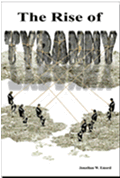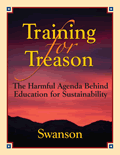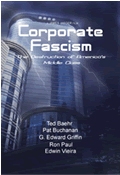JOSEPHINE COUNTY CONSTITUTION STUDY GROUP STARTING UP AGAIN
By John
Chambers
September 12, 2013
NewsWithViews.com
The Josephine County Constitution Study Group will start meetings again on September 14th and meet each Saturday. Last year, the Saturday meetings allowed the group to twice work its way through the two founding documents of the republic: The Declaration of Independence and the U S Constitution.
The group goes through each document word-by-word, section-by-section. Each section is read aloud by a member of the group and uncommon words are defined and then the implications of the passage are looked into.
For instance, Article I, Section 8, clause 12 says that that the US can have an Army but money for the Army is only good for two years: it has to be voted on again. Clause 13 says the US can have a Navy too, but no time restriction on money. Why is that? We get into some interesting discussions.
Not Political
From time to time, someone tries to inject politics into the discussion, this party is better than that and so on, but that is quickly cut off.
We are about the text of Constitution (and Declaration of Independence). We are looking for what might be called the Natural Laws of Governance.
The physical universe has laws, like Gravity. Whether you like it or not, whether it is a “good idea” or not, Gravity exists. When something is dropped, it falls.
Governance, it could be argued, has laws as well. If you had power over a group and demanded a certain policy be followed, your policy will have consequences. If you tax an activity, will you get more or less of that activity? You can probably answer that right now. It’s like Gravity. You drop something, if falls. You Tax something, it what?
Certainly there are other rules of Governance as well. A study of the Constitution, word by word and looking at the implications, just might reveal some rules.
Politics is like fuelling your car. You could put Electricity, or Hydrogen or Gasoline in your car and we can have knock-down-drag-out discussions about that, and whether we should tax one method or another, but that is all about the acquisition of power.
Governance is driving the car after you are fuelled up. When you step on the brake, what happens? When you step on the accelerator (gas, electric or hydrogen doesn’t matter), what happens?
The Josephine County Constitution Study Group studies Governance, the use of power, rather than Politics, the acquisition of power.
Everyone has a Say
Everyone has a say on a subject but personal attacks are not allowed. Lively discussions ensue, some would even say boisterous and stimulating.
Sometimes, the implications of the text take up a whole meeting or even two.
When we looked at Article I, Section 8, clause 5 which allows Congress to “coin money” and “regulate the value thereof,” we spent two meetings exploring the nature of money and what would be the perfect money. We looked for the Rules of Governance, if you have debt-based money like the US (and the world) has now, what are the implications of that? What is good about it, and what is the downside? If you have metal-based money (as many people advocate), what is good about that but also what is the downside? There is one. You need to know it.
(I can just see some folks now, screaming at me through their iPad, “the Constitution forbids any money but gold or silver!” and those folks really need to read Article I, section 10, clause 1, where gold and silver are mentioned and see what the Constitution actually says about that.)
You probably have opinions and evidence on that and other subjects. Come to the meetings and present your evidence, see if your opinions hold up to the evidence others might have. Or you might change their opinions. We’ll get to gold and silver when we get to Article I, section 8, clause 5 and again at section 10, clause 1.
Review
Since no one could be expected to make it to every meeting, the beginning of each meeting is a brief review to catch you up. After we have gone over the Declaration of Independence, which contains the Original American Pledge of Allegiance, we review that in most every meeting.
(Original pledge? Yes, before there was a flag, before there was a republic for which it stands, there was an American Pledge of Allegiance. And it has everything to do with Governance.)
After the Declaration and before the Constitution, we go over the Classical Forms of Government as known to the Greeks and Romans.
(Why that? Because when the Constitution was written, it was an open field. It could have set up a Monarchy or a Democracy or anything else. The founders chose a Republic. So how is that different from the other forms? We review that at the start of many meetings.)
| Subscribe to NWV Southern Oregon Edition Alerts! |
I run the meetings. My name is John Chambers. I taught Constitution at a private High School for a number of years in a state to the south of us which shall remain nameless. I also teamed up with a person and we gave presentations around the Los Angeles area on the importance of citizen participation and the Constitution. I am a card-carrying conservative. She was (and last time I asked, about six months ago, still is) a member of the Democratic National Committee.
My aim is to have you discover the facts about the Constitution and let you draw your own conclusions about Governance.
For Meeting place and time click here.
© 2013 John Chambers - All Rights Reserved
John Chambers has a standard response to anyone who questions his credentials for writing a study guide for the Constitution. “Zero,” he says. “I am a citizen who took an interest. I have no more intelligence or education than anyone else.”
His father might tell you that Mr. Chambers’ interest began when he was twelve. That summer, he sat young Johnny down and had him copy the Constitution into one of those composition books with the squiggly black-and-white covers. On the left-hand page, Johnny would copy the document in its original language. On the right-hand side, he translated it into modern English.
Years later, John Chambers was asked by a friend who runs the California Ranch School, a private high school, if John would do some writing for the school. While at the school, a few of the students asked Mr. Chambers if he could teach them something about the Constitution. He could.
The first class was to be strictly a reading of the document but it soon became apparent that was not enough. John remembered his own 12-year-old struggles. He may have read the Constitution, but his life experience was not enough to grasp the concepts. “I knew the words,” he says, “but couldn’t sing the tune.” As that first class read through the document, Mr. Chambers got them to give examples from their own lives.
The next class of students had a study guide with many of the difficult words defined and some examples for teenage lives. But the study guide had weak points still. It improved in that class and the next.
Mr. Chambers was soon teaching courses to neighbors and as an extension course at the local community college. With each class given, Mr. Chambers would see the weaknesses of his study guide, and its strengths. After five years of revisions, the study-guide became as stable as any textbook and became more broadly available.
Today, he runs the Josephine County Constitution Study Group in southern Oregon.
John's book: "The Constituion of the United States: A Study Guide" - Second Edition, can be ordered here.
1- Web Site: Who
Owns You Jo-Co
2- Web Site: Citizen
Hat
E-Mail: john@musack.com














 Share
This Article
Share
This Article






